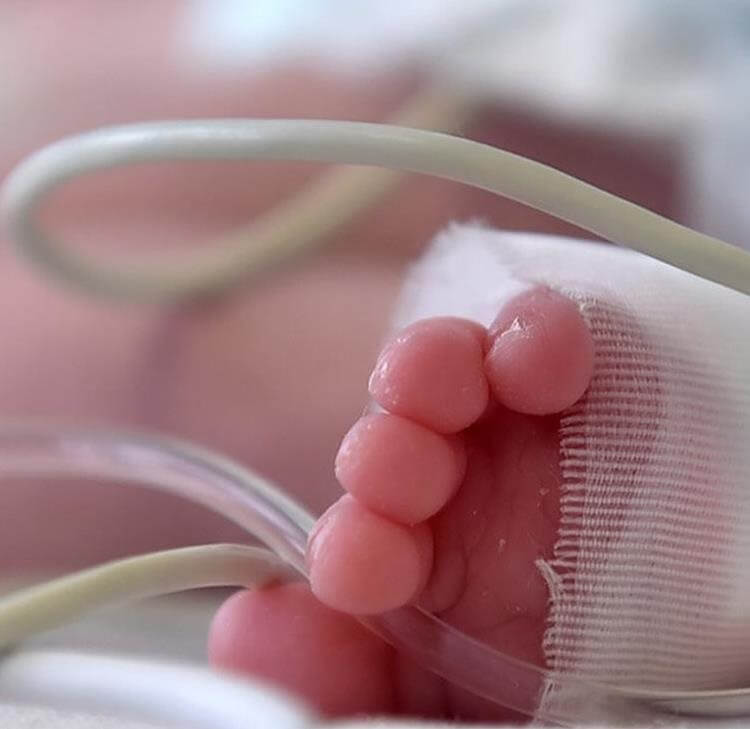DOLS are dead and LPS are here!
The Liberty Protection Safeguards legislation has now had Royal Assent (on 16 May 2019). The key questions now are when it will come into force, and how it will look in practice.
The Liberty Protection Safeguards legislation has now had Royal Assent (on 16 May 2019). The key questions now are when it will come into force, and how it will look in practice.
The dust is settling and people are looking to the future after the demise of an old regime, to be replaced by a new system after a dramatic, long-running saga. No - not Game of Thrones, but the abolition of the Deprivation of Liberty Safeguards (DoLS), to be replaced by the Liberty Protection Safeguards (LPS).
The legislation underpinning the LPS (the Mental Capacity (Amendment) Act 2018) received Royal Assent on 16 May 2019, though it will not come into force until a date to be specified in regulations in due course. The stated intention is for this to be in around 12 months, in spring 2020. But given the amount of work required for implementation, it would be no surprise for this to take longer, pushing the introduction back into late 2020 or even 2021, in our view.
There will need to be a number of Regulations passed which put some flesh on the bones, but most importantly perhaps also the Code of Practice to accompany the reforms, as lots of the detail on how they will work in practice will be in the code. There will need to be a lot of work on drafting that (though we know that this is well underway, and are pleased to be supporting it) but there is much to do, and it will then need (we trust) extensive consultation, which may well take up much of the rest of this year.
We have written previously about the new responsibilities for NHS bodies (both hospital trusts and CCGs) in the new system, and about the expanded role of care home managers in particular, notwithstanding concerns about the conflict of interest.
Since then, the key issue as the Act was finalised was what I’ve called the 'legislative hokey-cokey' about the inclusion of a definition of DoL. There was to be no definition, then it was put in at the insistence of a parliamentary committee, then it was amended heavily on the way through parliament, and ultimately it’s been taken out again. At the end of the day, we are left where we started. DoL is a concept from Article 5 of the European Convention of Human Rights, and must be interpreted in accordance with that case law. And in England and Wales that means the way it was interpreted in the Supreme Court in Cheshire West in March 2014 – the familiar 'acid test'. This means that those under 'continuous supervision and control and not free to leave', where it is imputable to the state, as it almost always is and they lack capacity to consent to the arrangements, then this is a DoL that needs authorisation by a process of law.
The only meaningful exception is the Ferreira (Court of Appeal, 2017) scenario of life saving medical treatment (summarised here and here). The new system, and new role for NHS hospital Trusts will no doubt refocus some attention on the question of how far from ICU towards less intensive in patient treatment the Ferreira exception should extend? We will come back to this, but for now it might be helpful just to recirculate some guidance we wrote for the Intensive Care Society and faculty of Intensive Care Medicine on this after Ferreira.
Subject to that, there is no reason to think that LPS will be dealing with smaller numbers of people than DOLS, as the definition of DoL is unchanged, and indeed LPS will be wider in that it now includes 16 and 17 year olds, and those in settings beyond care homes and hospitals, which previously fell outside DOLS and required applications to the Court of Protection to authorise any DoL. That is surely welcome.
As to how it will all work in practice, much will depend on the Code and we encourage all involved and interested to engage with what we trust will be an extensive and robust consultation process about this as it is developed over the next few months.
But whatever the Code looks like, the fundamentals of the legislation bring a clear change in roles and responsibilities, especially for NHS hospital Trusts, and for CCGs, as well as for care homes in particular.
It is important to start thinking about this and preparing now, and we would be pleased to discuss this and offer the support and training that you need.
We will cover the LPS in more detail in our next regular webinar, on XXXX, and will of course keep you posted as the picture develops, but please do get in touch if you have any queries or concerns just now.
Related expertise
You may be interested in...
Opinion - Maternity services
University Hospital Leicester hold their inaugural Maternity Safety Conference
In Person Event
Navigating your way through high profile sensitive reviews and investigations
Opinion
Junior doctors vote unanimously in favour of strike action
Opinion
Can toilet facilities amount to sex discrimination?
Published Article
Digital Twin Technologies: key legal contractual considerations
Opinion
Consultation launched on minimum ambulance service levels during strike action
Opinion - Maternity services
Changes to redundancy protections for employees post-maternity leave
Legal Update - Shared Insights
Shared Insights: Coroners’ Question Time
Press Release - Careers
Browne Jacobson health lawyer wins major accolade at Made in Manchester Awards
Opinion
BMA issues medical locum rate card for junior doctors
Legal Update
Employee who refused to wear a face mask fairly dismissed
Opinion
New toolkit to support safer recruitment in the care sector
Legal Update
Green Leases for the NHS
Guide
Government response to the consultation on the Higher-Risk Buildings Regulations
Published Article
The first 100 days for Integrated Care Boards
Opinion
Menopause and the workplace
On-Demand
Future of Care - Retirement Living webinar
In Person Event
Independent Healthcare In-House Lawyers Forum
Opinion
Government introduces new “anti-striking laws” to be discussed in Parliament
Press Release - Maternity services
Father Christmas comes to University Hospital Coventry and Warwickshire care of Browne Jacobson’s Birmingham Office Community Action Group
Opinion - Maternity services
The Patient Safety Incident Response Framework (PSIRF) and its impact on maternity services
Legal Update - Shared Insights
Shared Insights: Looking ahead to 2023 – what Health and Care employers need to know
Opinion
Coroner’s refusal to issue a Prevention of Future Deaths Report following death in prison custody inquest was lawful
Article
Mental health, eating disorders and placement of young people
Legal Update
LPS consultation and ‘go live’ planning
Opinion
Consultation launched on plans to amend NHS pension rules to bolster NHS workforce
Legal Update
Getting ready to face Industrial Action
Legal Update - Shared Insights
Shared Insights: Prolonged disorders of consciousness
Published Article
How AI and technology can transform the healthcare sector
On-Demand
The UK's green agenda - the outcomes of COP27 and actions since COP26
On-Demand
Insights from the Chief Coroner by His Honour Judge Thomas Teague, KC
Opinion
BMA advises consultants not to accept less than the BMA minimum rate card for extra-contractual work
The BMA is advising all NHS / HSCNI consultants to ensure extra-contractual work is paid at the BMA minimum recommended rate and to decline offers of extra-contractual work that doesn't value them appropriately.
On-Demand
Leadership and lessons learnt during the Pandemic by Professor Jonathan Van-Tam
Legal Update - Shared Insights
Shared Insights: The Patient Safety Incident Response Framework
Guide - Maternity services
Mediation guide for Clinicians: What do you need to know and how do you need to prepare
Opinion
NHS England – Updated Transaction Guidance
NHS England has published (October 2022) new guidance - Assuring and supporting complex change: Statutory transactions, including mergers and acquisitions.
Opinion
NHS England – Assuring and supporting complex change
NHS England has issued an updated (publication 11 October 2022) suite of Complex Change guidance about how it will assure and support proposals for complex change that are reportable to it. New and (where it is still in force) existing Complex Change guidance are as follows.
Legal Update
The Retained EU Law
Created at the end of the Brexit transition period, Retained EU Law is a category of domestic law that consists of EU-derived legislation retained in our domestic legal framework by the European Union (Withdrawal) Act 2018. This was never intended to be a permanent arrangement as parliament promised to deal with retained EU law through the Retained EU Law (Revocation and Reform) Bill (the “Bill”).
Legal Update
Economic crime and cybercrime
It is clear that the digital landscape, often termed cyberspace, is a man-made environment, in which human behaviour dominates and where technology both influences and aids our role in it — through the internet, telecoms and networked computer systems, which are often interdependent. The extent to which any organisation is potentially vulnerable to cyber-attack depends on how well these elements are aligned.
Legal Update
Redundancy consultation and selection concerning expiry of a fixed term contract – EAT put the spotlight onto a ‘selection pool of one’
In Mogane v Bradford Teaching Hospitals NHS Foundation Trust the Employment Appeal Tribunal (EAT) considered whether it was fair to dismiss a nurse as redundant on the basis that that her fixed-term contract was due to expire before that of her colleague.
























